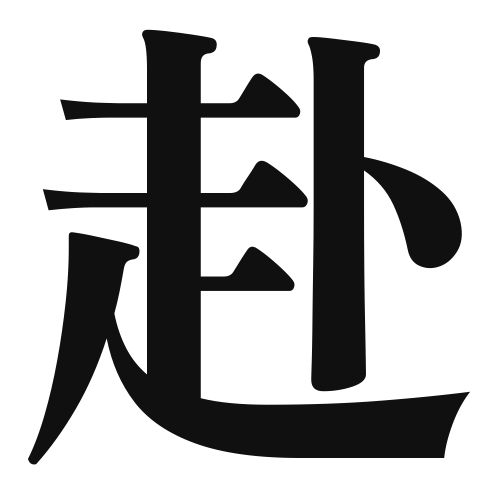1. Overview of Meaning
The kanji “赴” (fu) generally means “to go,” “to proceed,” or “to head towards.” It conveys the idea of movement or direction towards a specific place or goal.
2. Formation and Radical
Formation of the Kanji: The kanji “赴” is a phonetic-ideographic character (形声文字). It combines the meaning of movement with a phonetic component that suggests its pronunciation.
Radical: The radical for “赴” is “走” (to run), which relates to movement and travel.
3. Examples of Usage
Common Words and Phrases: Some frequently used words that include “赴” are “赴任” (funin – to take up a post) and “赴会” (fukai – to attend a meeting).
Example Sentences in Daily Conversation:
- 明日、出張に赴きます。 (Ashita, shucchou ni omuki masu.) – I will proceed on a business trip tomorrow.
- 彼は新しい職場に赴任しました。 (Kare wa atarashii shokuba ni funin shimashita.) – He has taken up a post at a new workplace.
4. Synonyms and Antonyms
Similar Kanji: A similar kanji is “行” (kou), which also means “to go” but is more general and can refer to various types of movement, not just directed movement.
Opposite Kanji: An antonym is “留” (ryuu), which means “to stay” or “to remain,” indicating a lack of movement or direction.
5. Cultural and Historical Background
Relation to Japanese Culture: The kanji “赴” is often used in formal contexts, such as in business or official settings, reflecting the importance of direction and purpose in Japanese culture.
Proverbs and Idioms: While there are no specific proverbs that prominently feature “赴,” the concept of moving towards a goal is a common theme in Japanese sayings, emphasizing diligence and determination.
